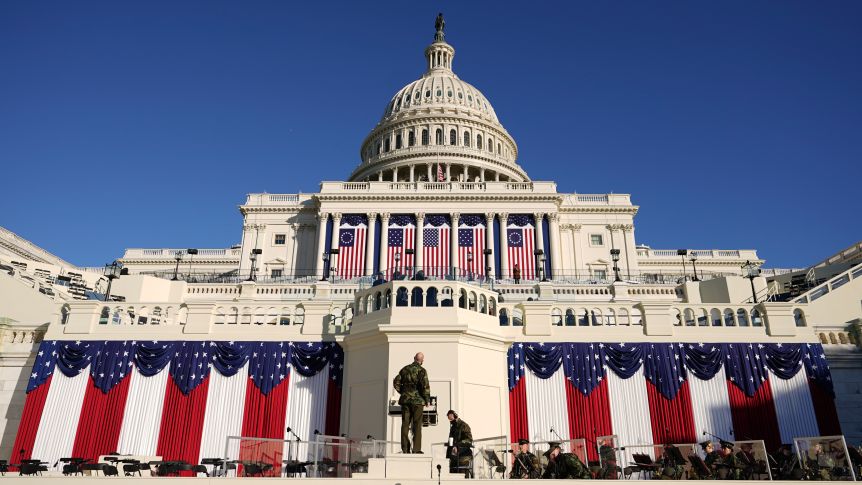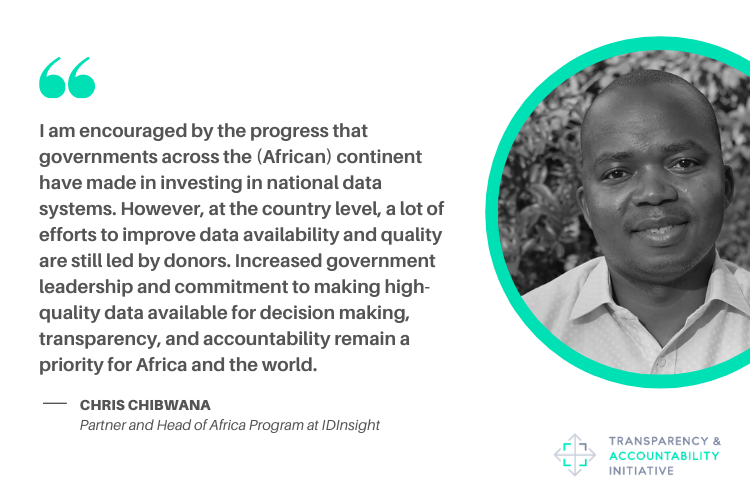Highlights
- Palatial problems
- Restoring some shine to the city
- Claim verification
- Bang to rights?
- Funder crystal balls
- TAI Spotlight: How to reinforce banking sector accountability
Palatial problems

Photo Credit: Alexei Druzhinin/RIA Novosti Russian Government, via Associated Press/ The New York Times
Days following his arrest on return to Moscow, Russian opposition leader Alexei Navalny responded with release of a video of Vladimir Putin’s billion-dollar secret palace on the Black Sea – paid for with what he called “the biggest bribe in history.” The Kremlin denied any connection to the property, but the video was viewed over 64 million times in the first three days of broadcast and helped fuel protests this past weekend that received a fierce state response – over 3,000 arrests. TAI listened to Frank Fukuyama this past week emphasize the importance of coalitions in effectively tackling corruption. The Putin regime seems determined to stop incipient coalitions emerging. Events are closely watched around the globe – the EU ponders its response. As The Economist pointed out – what becomes of Navalny matters not only to Russia but to the world.
Of course, Russia is not the only oil and gas producer to be repressive. As freedoms shrink further in many contexts, Publish What You Pay Global Council and Extractive Industries Transparency Initiative (EITI) Civil Society Board Members call on the international community to pay close attention to the state of civic space, particularly in resource-rich countries, and to ensure civil society concerns are heard and responded to.
Tatiana Cordero Velásquez and Mónica Enríquez-Enríquez ask funders to broaden their understanding of care and protection, by listening to activists. For their part, the International Civil Society Centre offers a list of events and programs to help civil society organizations navigate 2021.
We’ve kept an eye on the Westminster Foundation Pandemic Democracy Tracker since the first issue of our COVID-19 Monitor. Now the Foundation has published research on the role of legislatures in the COVID age, all too often sidelined by executive powers during crises. They find that legislative engagement varies significantly, and offer recommendations for how countries can ensure effective accountability and oversight in times of crisis.
Restoring some shine to the city

Photo Credit: ABC News
Across the Atlantic, this week saw a change of atmosphere in Washington, D.C., but already hopes of bipartisanship are fading. This probably doesn’t surprise Shandana Khan Mohmand, who wonders how inclusive governance can survive in a time of such polarization, and suggests ways to create bipartisanship on important issues, while Patrick Gathara notes Africa can teach the U.S. much on recognizing the need to reflect deeply to push systemic reform.
Catching up on our reading from December, we found hope for reducing the importance of party dominance in elections. Findings of Kristin Michelitch, Guy Grossman, and Carlo Prato suggest sustained transparency can make a difference and help improve accountability in electoral contexts.
In the meantime, given recent discrediting events in the U.S., it was reassuring to see prospective U.S. Treasury Secretary, Janet Yellen, emphasize her commitment to making anti-money laundering reforms a “very high priority” and to stop the race to the bottom on corporate tax rates. Both have significant global implications.
Joe Kraus talks transparency legislation, advocating to Congress, and considers the future of American soft power in Africa given its credibility issues. He may find some solace in the signaling effect of President Biden announcing new ethics rules for the U.S. federal government. The administration will bar political appointees from receiving a so-called ‘golden parachute’ payment and the practice of shadow lobbying for government employees who have recently left their jobs. Can such measures slow the revolving door between industry and regulators?
On the bleaker end, Ethan Zuckerman explain why fixing disinformation alone won’t save the country, while AccessNow launch a new tracker for U.S. tech policy and digital rights, including net neutrality, facial recognition, and Section 230.
TPA Full Disclosure Series: Chris Chibwana on incentivizing data use for decision making

Chris Chibwana leads IDinsight’s partnerships with African governments and African philanthropy to support data-driven development on the continent. Read why Chris was drawn to data from a very young age and his take on what’s needed to take better advantage of the data revolution. According to Chris, “a lot of efforts to improve data availability and quality are still led by donors. Increased government leadership and commitment to making high-quality data available for decision making, transparency, and accountability remain a priority for Africa and the world.”
Claim verification
Tracking accountability is vital to change, as seen in the Green 2.0 Initiative’s assessment of green group pledges to work towards racial and gender diversity across the environmental movement – and finding modest improvements in diversity and inclusion. Publish What You Pay and the Working Group on Gender Justice and Extractive Industries have published a feminist natural resource governance agenda to center women and frontline communities in dealing with the extractive industry sector.
Shona Hawkes says banks’ self-policing won’t stop the financing of deforestation and calls for government regulations to stop the money pipeline fueling forest destruction. (For more on the challenges of holding banks accountable for illicit flows in TAI Spotlight below)
Will the investment community face more accountability for its environmental, social and governance (ESG) claims? New rules mandating greater ESG transparency in the EU should add some necessary rigor, while Karthik Ramanna urges application of high quality accounting rules, such as prudence and dual reporting to ESG claims to cut down on risks of greenwashing.
With a retrospective lens, see this issue of Extractive Industries and Society examining Africa’s oil boom in the early 2000s and the political and institutional impacts. Pair with a collection of research, videos, and other tools to support governments to develop strong policies, oversight, and accountability around oil and gas production courtesy of Natural Resource Governance Institute, Chatham House, the Commonwealth Secretariat.
Of course, many of those new oil producers, such as Ghana, are now facing heavy debt burdens. Many have become increasingly dependent on Chinese lending and production deals. Dr. Christoph Nedopil and Mengdi Yue analyze China’s lending under the Belt and Road Initiative (BRI) and identify recipient countries that are especially vulnerable to default, which might require painful negotiations with China. (For more on China’s lending impacts in the heart of Africa see Essential Listening.)
Essential Listening: China’s Rapidly Evolving Relations in the DR Congo

Democratic Republic of Congo would become the 45th African country to join the Belt and Road Initiative. Stockholm-based independent researcher Johanna Malm offers perspective on how China’s current moves there are part of a trajectory that began with an enormous mining deal in 2007.
Bang to rights?
Remember the port explosion in Beirut that killed about 200 people last year? It turns out the business that purchased the explosives has close ties to the Assad regime, and one of the three Syrian businessmen linked to the scandal had previously been accused of procuring ammonium nitrate for the Syrian government. How did the investigating journalists uncover such details? In part by relying ono beneficial ownership disclosures.
Such use cases should inspire authorities in Argentina and the US to build on recent disclosure requirements. At the end of 2020, Argentina issued two new resolutions requiring the filing of beneficial ownership information on trusts and information on tax schemes. The U.S. also passed legislation requiring beneficial ownership info. What unites them? Resulting info is not public. Andres Knobel details weaknesses in both the Argentine and U.S. developments.
Nikita Lalwani has another ask for the U.S. – to take on regulation of the antiquities trade to clamp down on illicit activities. Meanwhile, Switzerland is conducting an open money-laundering probe of Lebanon’s central bank – prompting predictable responses of “fake news” from the accused.
It’s one thing to identify perpetrators. Quite another to bring them to account. We are just hitting the one year mark since the #LuandaLeaks scandal broke. This reminds us of Will Fitzgibbon’s recent piece chronicling fallout for Isabel dos Santos’s corporate empire built on decades of insider deals, preferential loans, and contracts fueled by public money. Isabel went broke, but as Will details the professionals who enabled her have seen few if any consequences, and recovering assets is proving a very tricky process.
Funder crystal balls

The Johnson Center for Philanthropy lists 11 trends to look out for in 2021 ranging from welcome attention to where money flows and how to supporting social justice movements to rebuilding public trust to fostering trauma-informed philanthropy. To meaningfully pursue racial justice, Rodney Foxworth and Marcus Haymon argue funders must share more decision making power with communities in grant funding.
Martin Levine worries about holding funders accountable, especially in this era when so many well-meaning but self-directed wealthy people are turning to philanthropy and public interest investing. Andrea Fionda take a step further back and wonders what it means to be philanthropic.
TAI Spotlight: How to reinforce banking sector accountability
How to reinforce banking sector accountability | Transparency and Accountability Initiative
We convened a funder conversation to explore what is and is not working in holding banks accountable for clamping down on illicit flows through the financial system. The discussion revealed five ways that funders can reinforce banking sector accountability and affirmed why they should care, whether motivated by human rights, environmental or governance concerns.
Aligning passive investment with Paris climate goals | Hewlett Foundation
The Foundation will invest in six projects that are aligned with decarbonization goals. The projects were selected based on their innovative ways in addressing key barriers, the solutions they propose, as well as the elements of diversity, equity and inclusion.
Building the America that never was, yet still must be | Ford Foundation
Executive Vice President of Programs, Hilary Pennington says it will require both reckoning and reaching across divides to deal with United States’ legacy of racism and patriarchy. Without such reckoning, America is not likely to succeed as a multi-racial democracy.
Supporting resilient and healthy workplaces | Luminate
Learn more about the Luminate’s Wellness Stipend Program for partner organizations to be healthy workplaces. So far, they have delivered 34 wellness stipends ($361,500) to partners and hope to inspire other funders to consider how they can support partner’s wellness.
$1 Billion for COVID-19 vaccine in low income countries | Foreign Commonwealth and Development Office
The U.K. has raised $1billion in funding to help distribute COVID-19 vaccines to low-income countries. All of the money raised will go to the COVAX Advanced Market Mechanism (AMC), a facility set up to ensure that 92 middle and low-income countries are able to purchase the vaccine for their citizens. (The U.S. also joined COVAX belatedly in one of President Biden’s first actions.)
Meet the new Puerto Rico Youth Fellows | Open Society Foundations
Congratulations to the ten recipients of the Puerto Rico Youth Fellowships whose projects range from teaching about food sovereignty to strengthening LGBTQPIA+ support to using art to fostering political engagement.
Job Listing
- Researcher vacancies at the Tax Justice Network: Latin America and Francophone Africa – January 31, 2021
- Finance and Operations Director, Publish What You Pay – January 31, 2021
- Policy consultant at Accountability Counsel – Ongoing
- Job postings at C4AD – Ongoing
- Job postings at Oxfam – Ongoing
- Job postings at Hewlett Foundation – Ongoing
- Job postings at MacArthur Foundation – Ongoing
- Job postings at Open Society Foundations – Ongoing
- Job postings at Luminate – Ongoing
- Job postings at Ford Foundation – Ongoing
- Senior Policy Advisor for Civic Space at Oxfam America – Ongoing
Call/ Opportunities
- The RightsCon call for proposals – January 26, 2021 (Today)
- I-RAnT! Nigeria Influencing Grant – February 7, 2021
- European Commission public consultation on sustainable corporate governance initiative – February 8, 2021.
- Soros Justice Fellowship –February 17, 2021
- Open Contracting Partnership impact accelerator program, Lift – March 12, 2021
- World Bank call for papers to better measure and understand corruption – March 15, 2021
- Call for submissions to SSIR Series: Social change in an era of extreme polarization – Last Thursday of every month until early 2021
- USAID’s Development Innovation Ventures (DIV) grant funding – Ongoing
- BetterTogether Challenge for innovators – Ongoing
- Call for research proposals Tax and civil society – No Deadline
- Free Digital Security Training – Ongoing
- Open Road Alliance Charitable Grant and Loan to organizations responding directly to COVID-19 – Ongoing
- Pulitzer Center Coronavirus news collaboration challenge – Applications will be reviewed on a first-come, rolling basis
- Call for proposals: Informality, tax, and the state – Proposals accepted on a rolling basis
Calendar
- The role of Open Data in the fight against land corruption – January 28, 2021
- Mining data in action: Building trust and transparency – February 15, 2021
- Democracy, civil society, and digital technology – February 17-18, 2021
- 2021 Data on Purpose conference – February 17-18, 2021
- Data on Purpose: Democracy, Civil Society, and Technology: February 17-18, 2021


